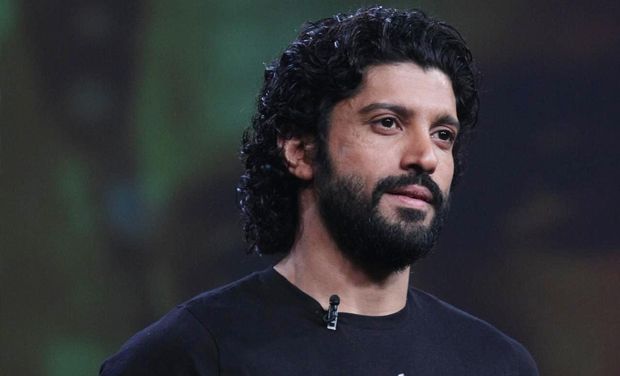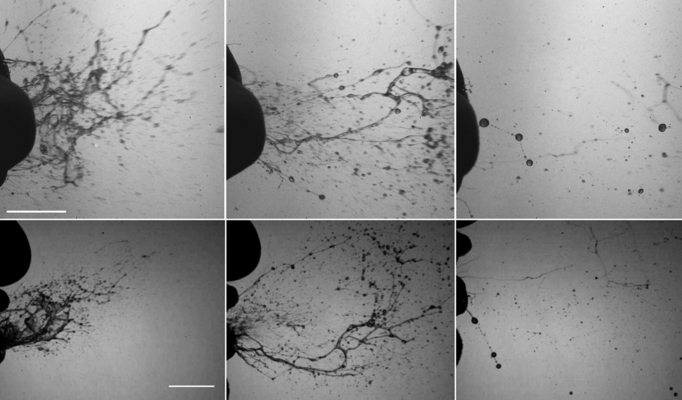
He directs, writes scripts, produces, acts, sings, dances and writes poetry. With that powerhouse of talent, he is increasingly getting compared to the other genius multi-talented persona of Indian cinema, Kishore Kumar. “It’s just one life,” he says. “It’s totally fine to not have to do just one thing for your entire life, if you can do different things which you are passionate about. You can follow those dreams and hopefully, even do well at them.” With Wazir soaring to the box-office ceiling and his cult film, Rock On! 2 coming up, he is increasingly being recognized as the most cerebral actor Bollywood has ever produced. Kaberi Dutta Chatterjee had a long-distance mid-night chat with the actor-director-musician-singer-poet-producer-scriptwriter, Farhan Akhtar.
Farhan Akhtar needs no introduction. The IMDB website states in his profile that he worked as a cameraman in Yash Chopra’s Lamhe in 1991 and then in 1997 as assistant director for a strange film, Himalaya Putra.
With such a humble beginning, you’d hardly think this is the son of the famous lyricist Javed Akhtar and scriptwriter, Honey Irani. Javedji’s work as dialogue writer in Sholay and Deewar have set the benchmark for dialogues in the Hindi film industry.
After this inconspicuous start, Farhan arrived in Bollywood in style with his baby project, Dil Chahta Hai, which he wrote and directed and which is still thought to be one of the cult movies of Indian cinema.
There was no looking back for him after that as he soar to new heights with acting, singing and producing skills in Rock On! and directing iconic films like Lakshya, Don, (with Shah Rukh Khan) and Don 2. He acted in several noteworthy films, like Bhaag Milkha Bhaag, Luck By Chance and Karthik Calling Karthik, the latest being Wazir, where he plays an army protagonist in tandem with the legendary, Amitabh Bachchan. His upcoming film, Rock On!2, written by the same writer of Rock On, Pubali Chaudhuri, and directed by Abhishek Kapoor, has the country waiting in baited breath for another rock musical to hit the mass.
I was just lucky to catch the very busy persona as he had just completed the shooting of Rock On!2. Speaking to the actor-director-producer-singer at midnight (morning in Mumbai) was the most thrilling experience for me. He came across as a thorough gentleman, polite, patient with the questions and my excitement in talking to him, as not just a journalist, but also as a huge fan and admirer.
You direct, you sing, you write poetry, you dance, you write screenplays and you act with such intensity that you make each character etched in viewer’s minds and in the history of Indian cinema. Playing which role is most fulfilling to you? Which action makes you the happiest?
Farhan: You know, it’s quite an impossible question to answer. It’s all about who I am, what I am. It’s what I like doing. It’s difficult to place one over the other. I’ve never been able to answer this question. And I don’t think I’m ready to do it now either.
So what is your goal? With the kind of powerhouse of talent that you have, it’s rather curious to understand how would you like to be remembered in history? Which do you like best doing? Which comes out from your heart?
Farhan: In all honesty, I like entertaining people through my writing, singing, acting in a film or directing a film or through the music that I do. We are in a field of communication and we communicate ideas and feelings to people. And hopefully get them to adopt those feelings and thoughts and use them in finding their ways in their own lives.
So just to be able to do that is very fulfilling. Whether through films or through music, it serves the same purpose. But they are two very different things. Music is far more relaxing to do than working in films. Films are relatively hectic. You know it’s always a chaos while making a film. It’s never easy making a film. But music is very relaxing.
With films you are dealing with so many people. So when many people come together there’s order within chaos. With music it’s all about your thoughts, you are clear about what you want to do and the collaborations are not that gigantic. You’re dealing with two to three people to make a song together. It’s definitely much more relaxing doing music than working on a film. But eventually, the larger purpose of doing both is to communicate and reach out to people.
Having explored almost all the aspects of creativity, is there anything that is left for you to explore? Is there anything you didn’t do or couldn’t do?
Farhan: I’m kind of happy with the work that’s going on. In all honesty, I don’t have the space to be able to think about what else is possible. These things have to happen naturally. As and when something that excites me I’ll probably give it a shot.
And going back to your second question, ‘What would you I like to be remembered as?’, I would want to say it’s kind of strangely vain to harbor these kind of thoughts that I would want to be remembered as someone. I think just through life’s experience, through your actions and through what people perceive what you are, it’s totally fine to not have to do just one thing for your entire life. If you can do different things which you are passionate about, you can follow those dreams and hopefully, even do well at them. So just to say that don’t hold yourself back. If from my life people can get inspired it’s perfectly okay. It’s just one life and make it count for everything that you are excited about.
From Dil Chahta Hai, to Rock On, to Wazir, you’ve distinctly avoided purely romantic roles, which has been for very long the USP of Bollywood. Is there any particular reason for that?
Farhan: Not really. I’ve just worked on scripts I liked. And there are different kinds of romance; you can romance music, you can romance a character you play.
What inspires you to take up a role?
Farhan: To start with, the writing. You have to love the story, love the script. Then you constantly think about your character. How important is your character and what is the contribution of your character is to the story. But mainly you want to get excited by the script. You want to feel good. It’s very instinctive.
How do you transcend from being a director to an actor, working with a director? Don’t you have any ideology conflicts on set?
Farhan: No, no, no. Filmmaking has fortunately become a very open and collaborative process. Even when I am directing, I want my actors to be involved in ways much more than they are coming to perform. I am open to their ideas on script, their ideas on character, on the films where they are not in. Similarly, when I am working with another director, I feel very comfortable with the person I’m working with, to share my thoughts and ideas. I never feel I need to be a director, I never had those thoughts. Like I know what I’m supposed to do on sets. But at the same time, you don’t want to hold back any questions, any suggestions, thoughts or ideas. Because that gives you much more clarity in terms of the work that needs to be done.
Out of all the characters you played: Say Aditya Shroff in Rock On, Karthik in Karthik Calling Karthik, Imraan in Zindagi Na Milegi Dobara, Danesh in Wazir or Milkha Singh in Bhaag Milkha Bhaag, which role is most fulfilling to you? Or which character was most difficult?
Farhan: By far the most tiring character to do is Bhaag Milkha Bhaag, which was also the most challenging to do. You know, every film that you work on, the reason you are there is because you feel the film is special. So it’s very difficult to single out any particular character. It’s difficult to step back and say this character was better than that. Because your experiences are different. They are different roles and different films and you have been inspired by that character. But the way you work, the way you are being a part of a wonderful film is always the same. But physically challenging and tiring role, by far, has been doing the role of Milkhaji.
Do you have any regrets so far?
Farhan: Not really. No I think it’s a bit pointless to think about it. What’s gone is gone.
(Kaberi D. Chatterjee is a novelist/ journalist and author of Neil Must Die and several other books and Editor of The South Asian News. She can be reached at kaberi@thesouthasiannews.com)


 South Asian News E-Paper
South Asian News E-Paper Punjabi News E-Paper
Punjabi News E-Paper

















